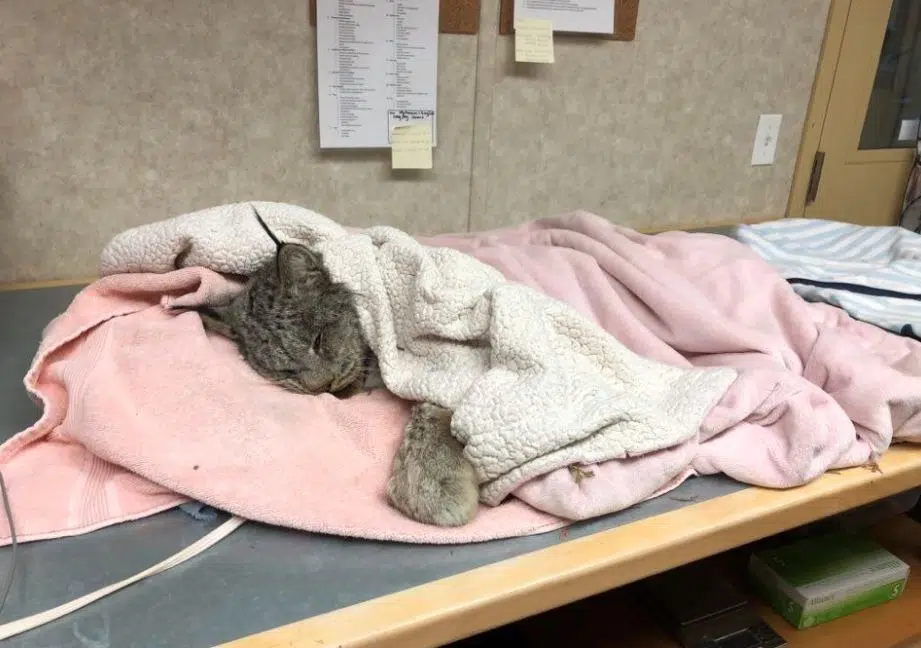
A female lynx seen wandering around the Brocklehurst neighbourhood in recent days is now in the care of the BC Wildlife Park.
Animal Care Supervisor Tracy Reynolds tells NL News the animal was caught by BC Conservation Officers yesterday, noting she is now waiting for some blood test results to come back.
“We will hold on to her for a little while and give her a bit of food, and make sure everything is functioning, and she will be relocated away from the city so just to make sure she has a little bit extra going out there,” she said.
In an email to NL News, Conservation Officer Rob Armstrong says the animal was tranquilzed on Shubert Drive, noting the lynx had no visible injuries.
“It is believed to be the one sighted numerous times in Brock on Tuesday, but there is no way to confirm that 100 per cent,” he said. “However, the lack of sightings being reported from that neighborhood since the capture seem to support this theory.”
Given that its unusual to find lynx in urban areas, Reynolds is also pretty confident they are caring for the animal that people had spotted around the North Shore and in Westsyde.
“Conservation officers were great and integral again in capturing this cat. We rely on them to bring in the animal for us,” she added. “This animal is not really a danger to the public so much but it definitely is not a good situation for the lynx to be in, so in the best interest for the cat, they brought it in.”
Natural Food Sources Scarce: BC COS
This is the second time the Wildlife Park has had to care for a lynx in the span of three months and Reynolds says she is not sure why the usually reclusive animal is being spotted within city limits more frequently.
“There are lots of different theories I guess as to why an animal might come in. She’s quite thin, so it could be that prey abundance is low this year, so they are roaming farther to look for food,” Reynolds said. “That could be one reason. Other than that, I really don’t know. There could just be a coincidence as well.”
Armstrong adds there is a natural low cycle of rabbits and upland game birds in the Kamloops area this year, which may mean natural food is a little harder to come by.
“We also need to consider that there has been a substantial increase in urban poultry in Kamloops and chickens are definitely on the menu for lynx as are free roaming housecats,” he said. “We can expect that these wild animals whether they are lynx, bobcats, coyotes or bears venture into town regularly, but the only reason they stay is because they are successful in finding a food source.”
“It is critical that the public do their part to reduce conflict with wild animals it to a bare minimum and help keep wildlife wild for everyone to enjoy.”
Back in October when park staff were caring for a male lynx, Reynolds told NL News that the animal could have been on the North Shore because it was being fed by area residents, something she says is a big no-no.
“Although people mean well, they are definitely not doing the right thing because if the animal can’t find a source of food where it is at, then it will continue to move on,” Reynolds said.
– With files from Colton Davies















